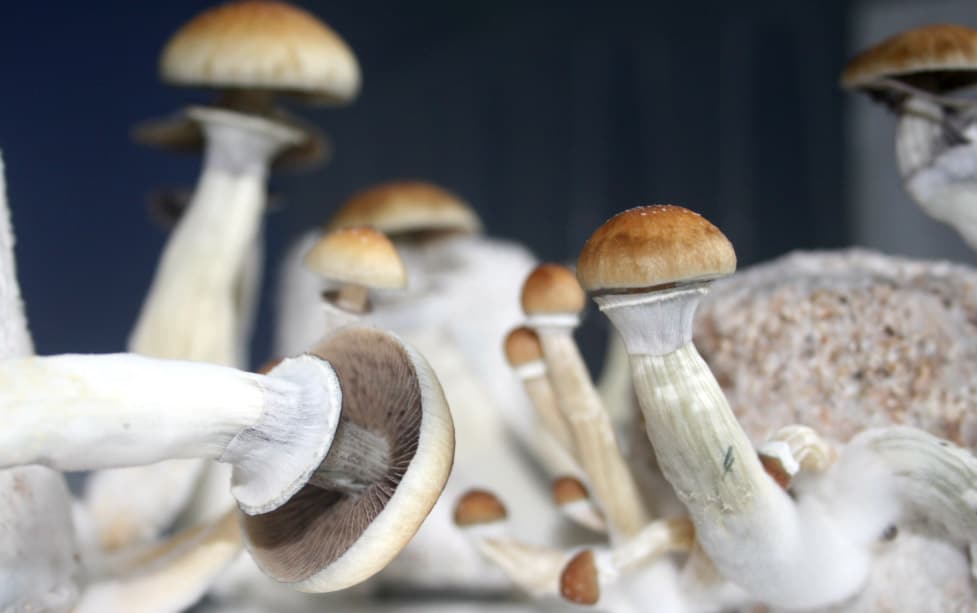The European Union is putting money into a psychedelic study with patients who are receiving palliative care for incurable illnesses. Researchers want to see if psilocybin can relieve their psychological distress better than existing medicines. The move, from a bloc representing 27 member countries and almost 450 million people, sends an important international message.
The EU is providing the full €6.5 million for the psilocybin study through its scientific research grants program, Horizon Europe—the first time the body has funded a psychedelic study of this kind. The research will be overseen by the University Medical Center Groningen (UMCG) in the Netherlands, working with HumanKindLabs. It will include over 100 patients at four clinics in the Netherlands, Portugal, Czech Republic and Denmark. All the participants will be receiving palliative care for one of four diseases: chronic obstructive pulmonary disease (COPD, of which the biggest cause is smoking); multiple sclerosis (MS); amyotrophic lateral sclerosis; or atypical Parkinson’s disease.
Each participant will be paired with psychotherapists, with whom they’ll meet for several sessions. They’ll receive the psilocybin in two of these sessions—first at a lower dose to acclimate them, and then at a higher dose on a second occasion. The study is placebo-controlled, so some patients will be randomly picked to get a filler.
“We are eager to see if we can ease the suffering of these patients.”
“Is this a sort of one-time fix, and then you go on with psychotherapy? We need to explore what is needed,” Robert Schoevers, lead investigator and UMCG psychiatry department head and professor, told Politico. In a separate statement he added, “We are eager to see if we can ease the suffering of these patients whilst also examining longer-term patient and family outcomes of this treatment, something that often gets overlooked but that is of enormous importance.”
The diseases the researchers are studying are all progressive, painful and debilitating. Of course, they’re also correlated with worsened mental health—for example, up to half of people with MS experience depression, about tripe the rate of the general population. Caretakers and loved ones also become more vulnerable to depression.
Psilocybin is broadly illegal in the EU; Canada is among countries with legal access for people receiving end-of-life care, albeit very limited.
In the United States, the recent progress of psilocybin research and policy reform, with growing awareness of its mental health care potential, owes a small debt to a 2016 Johns Hopkins University study with end-of-life patients. The JHU researchers worked with 51 adult patients with life-threatening cancer diagnoses; all were experiencing some level of depression or anxiety.
Taking psilocybin in a controlled environment, guided by trained psychotherapists, had positive effects on their mental health. Participants were found to have decreased depression and anxiety symptoms, and increased quality of life and optimism. Six months after the study, about four in five patients still showed improved mental-health measures, and a similar proportion reported improved well being and satisfaction with life.
JHU researchers continued studying the relationship between psychedelic experiences and feelings about death. In a study published in 2022, they surveyed over 3,000 adults including both people who’d had psychedelic experiences with drugs like LSD, psilocybin mushrooms or ayahuasca, and those who’d had non-drug related “near death experiences.”
Participants in both groups “reported having less fear of death and dying after the experience”, with “a lasting positive effect, providing personal meaning, spiritual significance and psychological insight.”
The fact the EU has now put up several million euros to support this kind of study has real significance.
Clearly, there’s something important happening with substances like psilocybin that’s worth understanding better.
The fact the EU has now put up several million euros to support this kind of study has real significance. The bloc has been slow to warm up to psychedelic therapy, and to remove research barriers. In 2023, the European Parliament considered a proposal to reform EU pharmaceutical laws to make it easier to conduct psychedelic research.
The new decision sends a signal that attitudes to psychedelics are changing at the highest levels of certain governments.
Photograph by Walter Henrique Pedron Moschen via Wikimedia Commons/Creative Commons 3.0





Show Comments